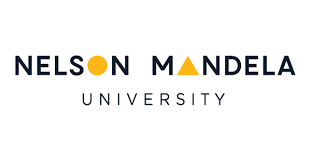Nelson Mandela University: Mandela University becoming less reliant on municipal water supply
Nelson Mandela University has made good progress in implementing alternative water sources to ensure the institution can be less reliant on municipal supplies.
While this augurs well for the medium term, the ongoing drought, and the present monthly percentage drop in the combined dam levels (presently at 18.14%), means the university must continue to use water wisely.
“We are a water-scarce continent. There will always be droughts. We need to seek long-term solutions. It is also imperative that we all change our water usage habits for the better because water is a precious resource,” says the University’s Sustainability Engineer, Dr Andre Hefer.
Cape Town has, for example, found a permanent solution to water scarcity – recycled sewage.
Work on a similar intervention is already underway at Mandela University, as part of the institution’s long-term water solutions. This is due to the access the institution has to recycled sewage (also known as return effluent) from the Nelson Mandela Bay Metro Cape Recife Waste Water Treatment Works.
Loadshedding
Implementation of these solutions, and all others across the Metro, are being hampered by the ongoing power outages. The impact of loadshedding and the need to fast-track alternative energy resources is also part of the institution’s long-term sustainability strategy.
Campus update
North Campus
The entire campus can now be run entirely on borehole water should the need arise. The quality of the water is exceptionally good, as is the supply flow.
While this water could be boiled for drinking purposes, the institution would provide potable water for drinking and use the alternative supply for toilets, cleaning, and showering.
The new residences will use the borehole supply for flushing of toilets. The existing Sol Plaatje Residence at Sanlam Student Village has been connected to the new Phase 1 residence borehole to allow for the flushing of toilets here.
South Campus
While there is no direct connection to a borehole on South Campus, work at the reclaimed water, or return effluent, treatment station on South Campus is going well as the institution seeks to chlorinate and refine this water to a level that is suitable for flushing and general cleaning purposes.
Ultimately, with additional revenue, these treatment works will become part of the institution’s long-term solution, like that which is underway in Cape Town.
At present, this water is only being used for irrigation purposes.
Ocean Sciences
The water from a defunct borehole on this campus was not found to be suitable. The campus will be reliant on the new Phase 1 residence borehole, like other sectors of the Summerstrand cluster of campuses. This means that if, and when, the need should arise, the university is able to switch from municipal water supply to the borehole water as an alternative.
Second Avenue
Like North Campus, the Second Avenue borehole has been tested and revealed extremely positive results.
With a new pump installed, the university can switch from the municipal supply to that of the borehole. Additionally, the borehole is connected to a generator which means the alternative supply can also be used during power outages.
Bird Street
Given its size, an additional tank for potable water will enable this campus to continue to function should there be a water shortage crisis.
Missionvale
While Missionvale Campus is fortunate to be served by the Nooitgedacht Dam scheme which feeds the western half of the metro, an aging water pipe system does not allow the University to isolate a section when there are leaks or breakages. This means the entire campus must go without water until the burst pipe is fixed.
Work is underway to ensure the campus’s generator is connected to the pump that supports the distribution of water from the 20 x 5000L back-up water tanks.
George
The compilation of a water master plan is underway to address the various water challenges being experienced at George Campus. These challenges go beyond water scarcity scenarios.
Measuring our consumption
One of the biggest frustrations of the institution’s efforts around saving water, has been the inability to accurately measure consumption. The introduction of new long-range pulse metres which allows for real-time measurement of individual buildings, sections of a campus and entire campuses will go a long way to monitor consumption and improve its water usage efforts.
Water Management Team

